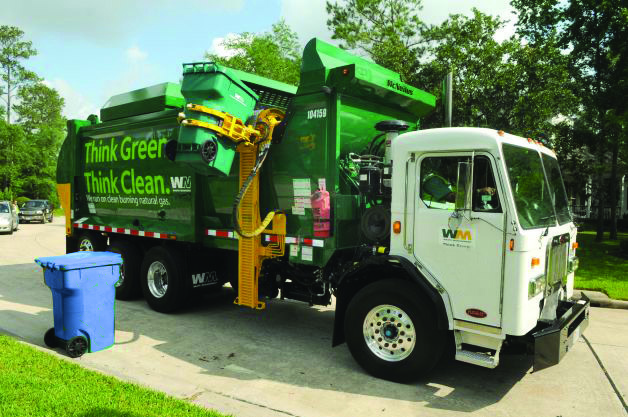SALINAS — The coming new year will provide somewhat unwanted notices in mailboxes around Monterey County — increased rates for garbage pickup.
The Monterey County Board of Supervisors OK’d the rate hike on Tuesday for unincorporated areas of the county served by Waste Management Inc. The increases will affect residents in the Salinas Valley Solid Waste Authority and the Monterey Regional Waste Management District, according to a staff report provided to supervisors.
The rate increases would affect residential and commercial customers. Salinas Valley customers in unincorporated areas will see the greatest increase with a 5.67% jump for residential and commercial users. Residential and commercial customers in the Regional Waste Management District will see a 4.31% increase. The increase will be effective Jan. 1.
The increase was approved unanimously, but several supervisors called out Waste Management for a problem with dinging the wrong customers with fines for over-stuffing bins. Supervisors John Phillips, Chris Lopez and Mary Adams all said they have heard from a significant number of residents who were fined when it was actually their neighbors who violated regulations.
In terms of dollars and cents, residential customers in the Regional Waste Management District will see their bill increase from $37.64 a week to $39.26 for a standard 35-gallon container. Commercial customers in the district with 3 cubic yard bins will see their bills jump from $336.24 a week to $350.73.
Over in the Salinas Valley, residential customers will experience a greater increase from $38.32 to $40.49. Businesses with commercial bins will see their bills jump from $503.79 to $532.38.
While normal inflationary pressures contributed to the increase, a state law taking effect Jan. 1 will also have a considerable impact on the costs incurred by Waste Management. Senate Bill 1383 has been ramping up toward its effective date on New Year’s Day and is designed to reduce the greenhouse gases released by organic material in landfills. It will require residents to separate food scraps and other organic materials into their green-waste bins.
Another component is food service businesses must donate edible food to food recovery programs rather than sending it to landfills. That will help feed the almost one in four Californians without enough to eat, according to language in the law.
Organic material like food scraps, yard trimmings, paper and cardboard make up half of what Californians dump in landfills, according to the California Department of Resources, which oversees CalRecycle. In the process of decomposing, organic material creates significant amounts of greenhouse gasses that cause climate change.
The methane, considered “a super polluter,” that is released by decomposing organic waste in landfills emits 20% of the state’s total methane, a greenhouse gas 84 times more potent than carbon dioxide.
Reducing these super pollutants will have the fastest impact on the climate crisis, according to CalRecycle.


